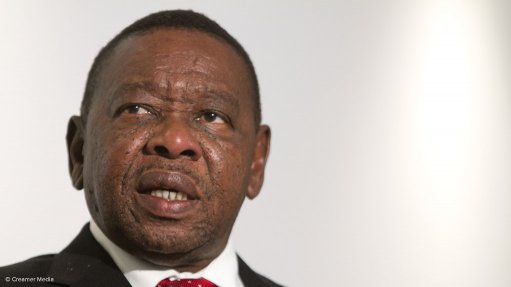
Blade Nzimande
Photo by: Duane Daws
The draft Higher Education Amendment Bill presents a series of extremely worrying proposals and should be withdrawn by Higher Education and Training Minister Blade Nzimande with immediate effect, the Democratic Alliance (DA) said on Sunday.
The bill has been approved by Cabinet and was submitted to the Speaker of the National Amendment on Friday.
The draft bill aimed to increase the powers of the minister himself to intervene in university matters of various kinds, particularly the two issues of transformation and of institutional breakdown, DA spokesperson Belinda Bozzoli said in a statement.
“It would, for example, provide the minister with the power to ‘determine transformation goals for the higher education system and institute appropriate oversight mechanisms’. The problem is not with transformative goals per se, but with the breadth and vagueness of the proposed intervention and the envisaged direct invasion by the minister into university decision-making,” she said.
In this case, it was not clear what goals the minister would set, how they would be set, whether they would be legally binding, and whether the minister would use his other (expanded) powers under the act to direct universities to act in particular ways, or even to dissolve councils should they not act in a particular way.
“In the case of institutional breakdown, the minister’s powers to appoint administrators and assessors and to dissolve councils have been broadened to include such criteria as ‘reasonable grounds’, rather than the existing objective legal threshold for this action; and he would have the discretion to take ‘any other appropriate action’ should he see fit to do so – again boosting his powers,” Bozzoli said.
“In our view, the draft bill is yet another step in the minister’s continued campaign of creeping state capture of higher education institutions. Both transformation and institutional breakdown are matters which strong, independent, and financially and socially responsible councils should deal with. Oversight of councils should vest in semi-autonomous bodies such as the Council on Higher Education and not in the hands of the state. If reforms in, and strengthening of, council structures and CHE powers are due, this should be done without licensing further invasion by ministers.
“It is ironic – if not tragic – that the very minister under whose watch university education has floundered, under whom one third of the sector is likely to declare bankruptcy in the next few months, and under whom turmoil, anger, and instability prevail, should believe that further intervention by himself would offer a solution,” she said.
The bill would do nothing constructive in the current fraught situation in higher education. Indeed, instead of calming the university sector down, the bill would inflame it further. It would divide universities, students, and the public at a time of crisis.
“We do not need inflammatory proposals such as this. We need wisdom, considered action, a reconciliatory approach, and sensible leadership,” Bozzoli said.